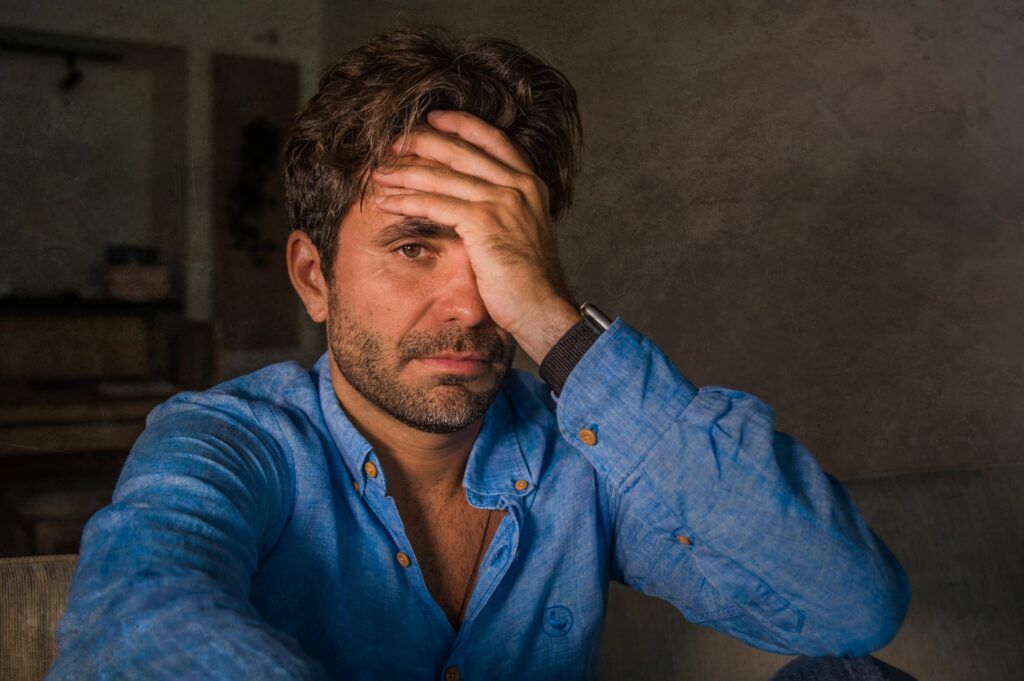Are you an adult child of an alcoholic-angry-dysfunctional parent? There’s hope!

Dear Readers, I asked a friend to write about his experience as an adult child of an alcoholic. What he writes about applies to any relationship with a parent who created a home environment of emotional unpredictability, secrecy, and/or shame.
Hi. I’m Tim and I am the adult child of an alcoholic. This is how you introduce yourself at a meeting of Adult Children of Alcoholics (ACA). If it sounds familiar, it is. ACA is a 12-step program similar to AA, but intended for those who were raised in alcoholic or otherwise dysfunctional families. In my case, my mother was the alcoholic, but possibly more importantly my dad was an emotionally distant workaholic. A lot of his dysfunction was no doubt adaptive behavior from dealing with my mom’s addictions.
The name of the program is significant. It is not just simply that as a child you had an alcoholic parent and now you are an adult. Part of this condition is understanding that because you were inadequately parented as a child, you may be ‘stuck’ in some ways, hence becoming an ‘adult child’. The ACA recovery can apply to anyone who had a childhood where there was anger, neglect, dysfunction, abuse, or other addictions.
Core to the ACA journey to recovery is “Becoming Your Own Loving Parent”. The program encourages that you identify within yourself 4 voices or personas: Loving Inner Parent, Critical Parent, Inner Teen, and Inner Child. Adult children acknowledge that their biological parents were unable to parent in a loving, supportive way that allows for healthy emotional development.
The Loving Inner Parent can provide the acceptance and emotional support that we didn’t receive as children. The Critical Parent is the voice of shame. The Inner Teen and Inner Child represent the voices of various points of our childhood. Because of the dysfunctional parenting we received, there are parts of ourselves that are ‘stuck’ in childhood. The process of self-parenting is intended to heal the inner child and protect us against the Critical Parent.
I have only been following this path to recovery for several months. Like many of these journeys, it began with a crisis. Mine was dealing with crippling anxiety. My anxiety meant that weeks before what should be fun events, I would be so consumed with worrying about possible bad outcomes that by the time the event came, I would just be so glad to be done with it that I could find no joy in it. In seeking therapy, I learned that many ACA deal with anxiety. Our childhood experience of never knowing what family crisis would erupt leaves the impact of always being on guard and hypervigilant.

It is likely obvious that both the trauma of dysfunctional parenting as well as the journey to recovery have spiritual implications. Here are a few that I have found:
- Many of the steps in a 12-step program are about surrendering to pain in search of healing. We can’t begin to heal without accepting the nature of our condition, accepting that our parents failed us in some way, and acknowledging and making amends for our faults. To me, it follows the redemptive healing that Jesus accomplished in surrendering and accepting the suffering of the Cross for us.
- One fundamental lesson of ACA is how to love ourselves. Many adult children were not taught this by their parents due to their own illness. They heard instead that ‘they were in the way’, or possibly that the parent’s addiction was more important to them than their child. Our Loving Inner Parent teaches what the Gospel teaches: we are each worthy of love simply by being a human. In the same way that we can’t earn God’s love (or lose it), we have to be willing and ready to love ourselves. When I am anxious, my Inner Parent reminds me that God loves me, cares for me, and that all will be well.
- There is strength in community. When I hear the stories that other adult children share, I am really struck by the way that so many wounded souls walk among us. Like our faith journey, the path to recovery is an easier one in the company of ‘fellow travelers’. Even those who were not raised in dysfunctional families need to cope with the trauma of original sin. All souls are wounded and in need of compassionate, loving support. We see in both our faith communities and in communities of recovery Jesus’ loving presence in those around us.
The 12-steps traditions have variations of “The Serenity Prayer”. ACA’s version is “God, grant me the serenity to accept the people I cannot change, the strength to change the one I can, and the wisdom to know that one is me.” ACA tend to be overly responsible, wanting to ‘fix’ or ‘save’ anyone in their lives that they sense needs it. This prayer teaches that the only one I can save is myself. With God’s help, I can reparent myself to let the healing begin.
If any of this applies to your childhood, consider attending a meeting. Most are available on-line (thanks, Covid!). They are very easy to quietly attend in order to become familiar with what the program offers. To learn more or find a meeting, see https://adultchildren.org/.